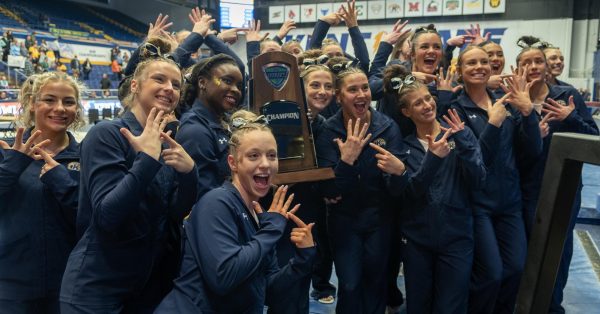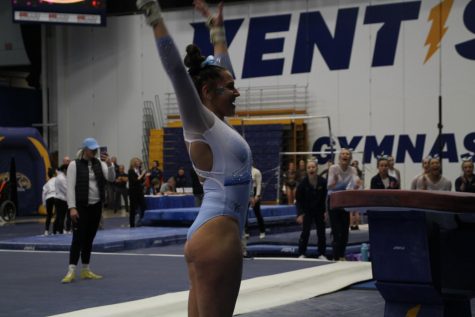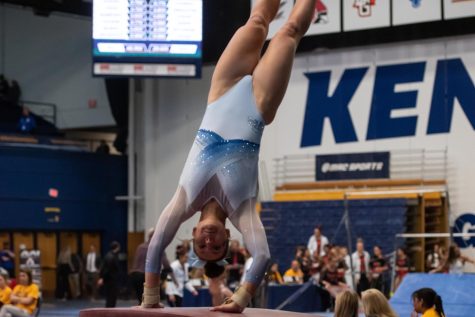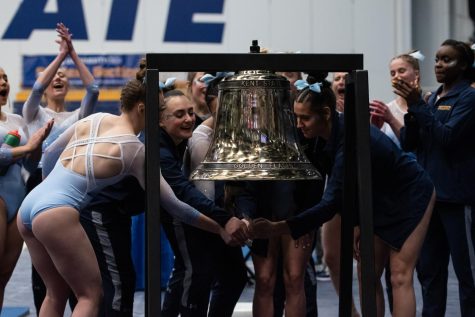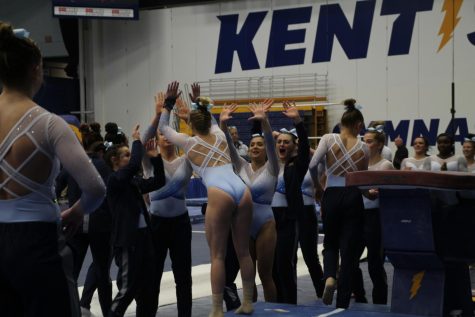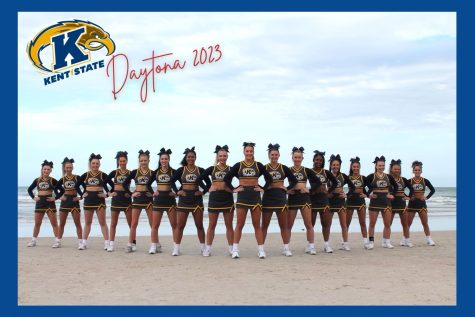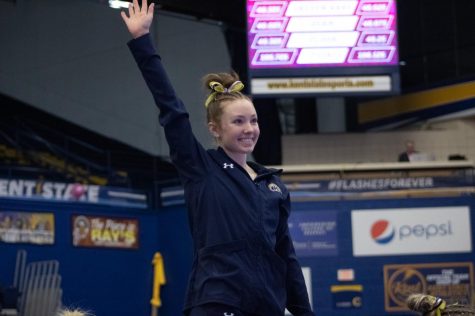Kent State students remain optimistic amid internship cancellations
June 4, 2020
Summer, the season many college students depend on to seize competitive internships and job opportunities, has dissolved college students’ plans as the coronavirus pandemic forced companies to cancel or delay employment, leaving students in disarray.
When Zachary Miller, a Pittsburgh native and junior architecture major, found out in March that he landed an internship with a prominent architectural firm in Akron, and he was excited.
“I remember I was at Bob Evans in Stow that day when I got the call that I was hired,” he said. “They said I can come in next Monday.”
Then, Kent State announced it would be closing all campuses, canceling all in-person classes for the remainder of the semester and switching to remote learning as a precautionary measure due to the coronavirus pandemic.
Miller said he had to move back home to Pittsburgh but stayed in touch with his potential boss, who pushed back his start date thrice. The third time his start date was postponed, he was given a mid-May start, so he moved back to Kent and subleased a friend’s apartment to prepare for the internship. Unfortunately, the company had other news.
“I got the email, but the headline was bad news,” Miller said. “‘I’m sorry, we’re instituting a hiring freeze and we just talked to some of our financial advisors, and we’re not able to hire anyone else at this point.’”
Internships are a great opportunity for college students to develop and learn new skills, gain work experience, network with industry professionals, make money and transition to possible full-time work. However, like many Americans who have lost jobs, students have seen internships, clinicals and field experiences canceled or delayed due to the coronavirus pandemic.
Kristin Williams, executive director of Career Exploration and Development, said Kent State has over 250 programs and majors that are academically coordinated, and many of those programs may offer an internship as an elective option or require it for graduation.
Miller says to become a registered architect, he needs 3,740 work hours, which can be achieved through internships, design competitions or volunteer work. The typical route students at Kent State take is to meet these requirements through internships, so he was devastated when his was canceled.
“I wouldn’t have been mad if they told me earlier,” he said. “I would have had more time to pursue something else, but because it was so last minute, I was so frustrated.”
According to a report from the National Association of Colleges and Employers, a number of employers are modifying their programs, including rescinding offers, delaying start dates or asking students to work remotely. The coronavirus pandemic has forced organizations to institute hiring freezes, decrease their budget or change their staffing levels due to economic challenges.
After suffering a fractured spine while doing gymnastics in high school, rising senior and athletic training major Alyssa Williams became interested in athletic training through physical therapy.
“If I had an athletic trainer, I really thought that it would have been interesting to see how much my healthcare could have been better if I had access to that,” she said.
Alyssa Williams’ program requires students to complete 120 observation hours their freshman year. During sophomore to senior year, they are required to complete 15 to 20 hours a week of clinicals with an assigned team, working with a local high school or clinic.
“Then when we all got the announcement that COVID-19 was here, that’s when we got pulled from our clinicals,” she said.
Alyssa Williams was working at Cuyahoga Valley Christian Academy with their athletic trainer completing her clinical hours when she received the news. She anticipated working there a full semester to gain as much experience as possible. Now, she’s uncertain if she’ll ever be able to return.
“I just felt like that opportunity had been stripped away,” she said.
Kristin Williams said students, especially those in graduating situations, are encouraged to work with their internship coordinators, and that Kent State is ensuring students meet their requirements.
“The institution is doing everything they can to create alternative assignments,” she said. “Whether that looks like a number of micro internships, a completely alternative assignment or adjusted start dates.”
Kristin Williams said Kent State students have become flexible and are working with companies to make adjustments amid the many disappointments that accompanied the coronavirus pandemic.
Miller said that even after his internship was canceled, he felt lucky and relieved because he had shelter and food, which many people do not have access to during this time. With that, he got back to searching for new opportunities.
“I knew construction was another way to get hours and that’s something I’ve never formally worked in,” he said. “I started calling a bunch of construction places in the area [Kent] and also applying on Indeed and LinkedIn.”
He received an opportunity with Ohio Home Improvement in Kent, and they are willing to work with him so he can get course credit. He starts in June, offering his expertise from his past architectural courses at Kent State.
Alyssa Williams stressed this loss isn’t partial to Kent State students but is rather a national problem. She said she’s hopeful and is thankful to her clinical education coordinator for being supportive and transparent with her the entire time.
“She’s been really great through this whole mess,” she said. “She’s been in touch with our governing body for athletic training students, trying to figure out what’s going to happen and see if there are any solutions.”
Fortunately, Alyssa Williams will not have to make up any hours, and hour requirements have been lifted at this time. As one of 15 students in her cohort, she is also thankful for the tight-knit family structure that exists among her classmates who she credits for helping her through this process. She anticipates being able to get back to work but only when that can be done safely.
“I worry about the safety of my athletes coming back,” she said. “I know if we don’t have work then we won’t have clinicals because we won’t have anywhere to be placed, so it’s really based on if we can safely work.”
Not all internships have been canceled, though, according to Kristin Williams.
“We’ve seen a huge number of internship employers pivot their experiences to remote,” she said.
Williams encouraged students to utilize Handshake, a career management platform for students, where employers post internship opportunities and co-op opportunities among others. She said on any given day there are five to 600 opportunities available to students on Handshake.
“Through Handshake, they can also see if the company is planning any kind of recruiting,” she said. “They can also see if the company is extending open interviewing — now happening remotely.”
Contact Tramaine Burton at [email protected].














